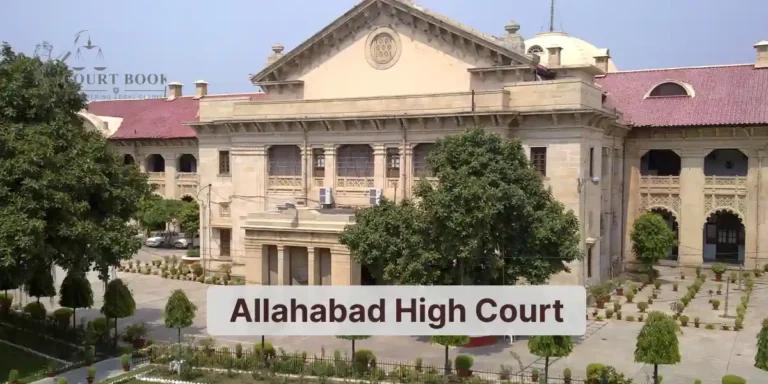The Allahabad High Court has issued a stern warning to state authorities against utilizing private land without following due legal procedures. The court made it clear that if such violations continue, strict penalties will be imposed on the responsible officials, which may be recovered from their personal accounts.
The bench of Justice Manoj Kumar Gupta and Justice Anish Kumar Gupta emphasized:
Read Also:- Court Lacks Expertise to Verify Signatures; Must Seek Handwriting Expert's Opinion: Allahabad HC
"The State Authorities must exercise caution and ensure that no citizen’s land is used without following the proper legal procedure. If found guilty of such unlawful acts, officials responsible shall face strict penalties, personally recoverable from them."
Case Background
The case was filed by petitioner Kanyawati, who had legally purchased a piece of land in District Bareilly. According to revenue records, a chak road was located south of her plot. However, the road was later widened, and a portion of her land was used for this expansion without any official acquisition process or compensation.
Despite multiple representations to the authorities and filing an RTI inquiry, Kanyawati was informed that no records existed regarding the acquisition of her land. With no response from the authorities, she approached the High Court, which directed the District Magistrate of Bareilly to refer the matter to the District Level Committee as per the Government Order dated May 12, 2016.
Committee’s Response and Legal Proceedings
The District Level Committee rejected her claim, arguing that the initial width of the chak road was 3 meters, and an additional 2.5 meters was available on both sides. They contended that the road widening did not infringe upon any individual’s property rights.
Unconvinced, Kanyawati sought justice under Article 226 of the Constitution, asserting her property rights under Article 300A, which protects citizens from being deprived of their property without due legal process.
High Court’s Observations on Property Rights
The Court noted that the road was originally built by the Sugar Industry and Cane Development Department two decades ago without an acquisition process. Later, the Public Works Department (PWD) further widened it, encroaching upon Kanyawati’s land without compensation.
Referring to the Tehsildar’s report, the Court reaffirmed the constitutional protection of property rights:
"The land of a citizen cannot be acquired without payment of due compensation. There is no concept of implied consent when it comes to land acquisition. The law mandates reasonable compensation for any property acquired for public purposes."
The Court relied on Hindustan Petroleum Corpn. Ltd. v. Darius Shapur Chenai, N. Padmamma vs. S. Ramakrishna Reddy, Jilubhai Nanbhai Khachar v. State of Gujarat and Vidya Devi v. State of H.P, where the Apex Court observed that no person can be deprived of his right to property under Article 300A of the Constitution without sanction of law.
The Court held that right to property being a Constitutional Right instead of a Fundamental Right was at par with human rights and a person could not be deprived of the right over his property without following due procedure in law. It held that any person whose land is being utilized without sanction of law is entitled to compensation.
Read Also:- Allahabad High Court Criticizes UP Government for Not Appointing Teachers, Citing Violation of Article 21-A
Noting the petitioner’s struggle to seek justice, the High Court ruled in her favor. It directed the District Level Committee to determine and pay her rightful compensation within four weeks, along with interest as per the Right to Fair Compensation and Transparency in Land Acquisition, Rehabilitation and Resettlement Act, 2013.
The Court also issued a strong warning to state authorities:
"State officials must ensure that land acquisition follows proper legal procedures. Any future violations will result in personal liability and financial penalties."
Case Title: Kanyawati v. State Of U.P. And 5 Others [WRIT - C No. - 27598 of 2020]















